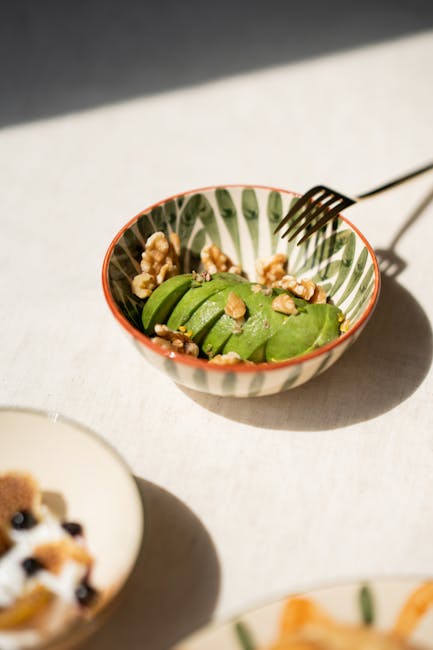
“`html
Vegan Foods That Are High in Omega-3: A Comprehensive Guide
Introduction
In recent years, the popularity of veganism has surged, with more individuals opting for plant-based diets for health, ethical, and environmental reasons. However, one nutrient that often raises concerns among those who choose this lifestyle is omega-3 fatty acids. These essential fats are crucial for optimal health, playing a vital role in heart health, brain function, and inflammation reduction. Yet, many people, especially vegans, struggle to find adequate sources of omega-3 in their diets. This blog post will explore the best vegan foods that are high in omega-3, ensuring you meet your nutritional needs without compromising your dietary choices.
Understanding the Concept
Omega-3 fatty acids are a type of polyunsaturated fat that our bodies cannot produce on their own. This means we must obtain them through our diet. There are three primary types of omega-3s:
- ALA (Alpha-Linolenic Acid): Found primarily in plant sources.
- EPA (Eicosapentaenoic Acid): Mostly found in fish and algae.
- DHA (Docosahexaenoic Acid): Also found in fish and algae, vital for brain health.
The recommended daily intake of omega-3s varies, but the NHS suggests that adults should aim for a minimum of 250-500 mg of combined EPA and DHA daily. For vegans, focusing on ALA sources is essential, as they can convert some ALA into EPA and DHA, although this process is inefficient.
Real-World Examples
Consider two individuals, Sarah and John, who have adopted a vegan diet for health reasons. Sarah diligently researches her nutritional needs and includes a variety of omega-3-rich foods in her diet, while John relies heavily on processed vegan products.
Sarah incorporates flaxseeds into her morning smoothie, adds chia seeds to her oatmeal, and enjoys a handful of walnuts as a snack. As a result, Sarah has experienced improved energy levels and better cognitive function.
On the other hand, John, who primarily eats convenience foods, finds himself feeling sluggish and notices a decline in his mood. After consulting with a nutritionist, he learns about the importance of omega-3s and begins incorporating more whole foods into his meals.
Benefits and Challenges
While there are numerous benefits to including omega-3-rich foods in a vegan diet, there are also challenges to be aware of:
- Benefits:
- Supports heart health by reducing triglycerides and inflammation.
- Improves brain function and mental health, potentially lowering the risk of depression.
- Promotes healthy skin and eyes.
- Challenges:
- The conversion of ALA to EPA and DHA is inefficient in many individuals.
- Some vegan sources of omega-3 may be less palatable or convenient.
- Limited knowledge about omega-3-rich foods can lead to inadequate intake.
Expert Opinions & References
To ensure you’re getting enough omega-3s, here are some excellent vegan sources:
- Flaxseeds: One of the richest plant sources of ALA. Just two tablespoons provide about 6,388 mg of ALA.
- Chia Seeds: These tiny seeds pack a punch with around 5,060 mg of ALA per ounce.
- Walnuts: A great snack option, with about 2,570 mg of ALA per ounce.
- Hemp Seeds: Offering around 6,000 mg of ALA per three tablespoons, these seeds can be easily added to smoothies and salads.
- Algal Oil: A supplement derived from algae, it’s one of the few vegan sources of EPA and DHA. Brands like Mayo Clinic recommend algal oil for those who want to ensure they’re getting enough of these crucial omega-3s.
For more information on omega-3 fatty acids and their importance, check out this resource from Nutrition.gov.
FAQs
1. How much omega-3 do vegans need?
Vegans should aim for a daily intake of around 1.6 grams of ALA, which can be achieved through a varied diet rich in omega-3 sources like flaxseeds, chia seeds, and walnuts.
2. Can I get enough EPA and DHA from a vegan diet?
While the body can convert ALA to EPA and DHA, this process is not very efficient. For optimal levels, consider taking an algal oil supplement, which provides both EPA and DHA.
3. What are the best plant-based sources of omega-3?
The best plant-based sources include flaxseeds, chia seeds, walnuts, hemp seeds, and algae-based supplements.
4. Are there any risks associated with omega-3 supplementation?
Generally, omega-3 supplements are safe for most people. However, it’s essential to consult with a healthcare professional before starting any new supplement regimen, especially if you have underlying health conditions or are taking medications.
Final Thoughts
Incorporating vegan foods high in omega-3 into your diet is essential for maintaining optimal health. By choosing a variety of sources such as flaxseeds, chia seeds, walnuts, and algal oil, you can easily meet your nutritional needs while enjoying the many benefits that these essential fatty acids provide. Whether you’re new to veganism or a long-time practitioner, staying informed and proactive about your omega-3 intake will help you thrive on your plant-based journey.
“`
https://images.pexels.com/photos/17498970/pexels-photo-17498970.jpeg?auto=compress&cs=tinysrgb&h=650&w=940